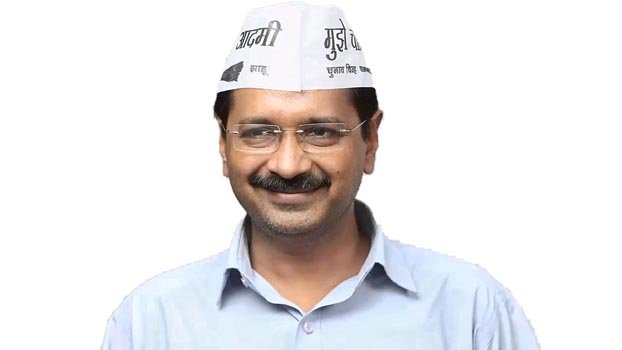Delhi election
Kejriwal set to return, BJP to review failure

The Aam Aadmi Party set a repeat of its 2015 feat in Delhi as it reduced its closest rival to single-digit seats in the 70-member assembly, report BBC and NDTV. The Arvind Kejriwal-led party appeared to win 63 seats as counting of votes neared its end while the BJP -- which led a high-voltage campaign on anti-CAA protests and nationalism -- settled around seven seats after initial gains.
While Kejriwal was comfortably placed in his New Delhi seat, party's number two leader, Manish Sisodia, had a tense day in a see-saw battle in his constituency. "Happy that people voted to make Arvind Kejriwal the chief minister for the third time with a massive victory," said Manish Sisodia.
The Congress has failed to open an account yet again with all its heavyweights, including Alka Lamba and Arvinder Singh Lovely trailing. Both AAP heavyweights Manish Sisodia and Atishi Marlena have won their respective seats after initial scare. The biggest AAP heavyweight trailing at the moment is Speaker Ram Niwas Goel.
Exit polls had predicted another term for Arvind Kejriwal-led Aam Aadmi Party, the BJP, which powered its campaign on the anti-Citizenship (Amendment) Act protests at Shaheen Bagh, is likely to win right seats. The campaign for the Delhi Election 2020 has been bitter and polarised, the political discourse bogged down by threatening slogans and foul language.
The ruling AAP has sought to retain power on the work done in the field of education, health, and in providing cheap electricity and water, while the main opposition BJP conducted a massive campaign, roping in most of its 70 union ministers, 270 MPs and leaders and Chief Ministers from various states, to deliver it's campaign message on anti-CAA protests and nationalism.
Delhi election 2020 was held on Saturday, with 62.59 per cent of the city's voters coming out to exercise their democratic right. The voter turnout in the previous assembly election in 2015 stood at 67.5 per cent. The results are a setback for the BJP after it won a landslide in general elections last year.
"This is a win for Mother India," a grinning Kejriwal told his supporters at the AAP office. He waved and blew them kisses, and said he "loved the people of Delhi".
The 51-year-old former bureaucrat rose to political fame as an anti-corruption campaigner. He first became chief minister in 2013 and was then re-elected in 2015 with a landslide. He has been credited with turning around Delhi's government-run schools, establishing affordable neighbourhood clinics and providing cheap water and electricity.
He has also consistently campaigned for greater autonomy for the state, as control of its police force and land still rest with the federal government. "It's not just my win. This is a win for every family whose children are now getting good education in school, whose family members are getting good treatment in hospitals," he said.
Kejriwal led a victory parade from the AAP office to the Hanuman temple in the city centre, after saying his party's victory was a blessing from Hanuman, the monkey god. Celebrations are under way outside the AAP office where party workers told BBC Hindi the win vindicates their decision to campaign hard on "governance and development", and refrain from "divisive politics".
The BJP's campaign saw heavyweights such as Home Minister Amit Shah take to the Delhi streets to woo voters but that appears to have had little impact on the outcome. The party relied on its Hindu nationalist rhetoric, criticising a peaceful gathering of thousands in Shaheen Bagh - a largely Muslim neighbourhood in Delhi - which has been protesting against India's controversial new citizenship law, known as the Citizenship Amendment Act (CAA).
Many Indians say the law discriminates against Muslims. Will the Delhi election have a larger impact and hurt the BJP's prospects?
There is no clear evidence yet. Many believe the BJP's "single-track" muscular nationalist campaign is creating a climate of anxiety, insecurity and exhaustion at a time when India is actually a secure nation. They say this brand of stridently nationalist politics draws attention away from the serious economic slowdown in the country. But what's clear is that Mr Modi remains India's most popular leader and his base is still largely intact.
What Kejriwal's victory does is offer a breather to a largely divided and demoralised opposition - and it proves that good governance wins votes. BJP leaders painted the protesters at Shaheen Bagh - largely comprising Muslim women - as dangerous traitors who wanted to break up the country. And they alleged that the AAP was supporting them, a tactic which did not chime with voters.
On Tuesday women, men and children held a silent protest at Shaheen Bagh, many wearing black gags around their mouths, reports the BBC's Rajini Vaidyanathan who was at the vigil. The BJP has only marginally improved its tally from 2015, when they won only three seats as the AAP swept to victory.
The Congress party, which won no seats last time, appears to have drawn a blank this time too. At last year's general election the BJP won all seven parliamentary constituencies in Delhi.



